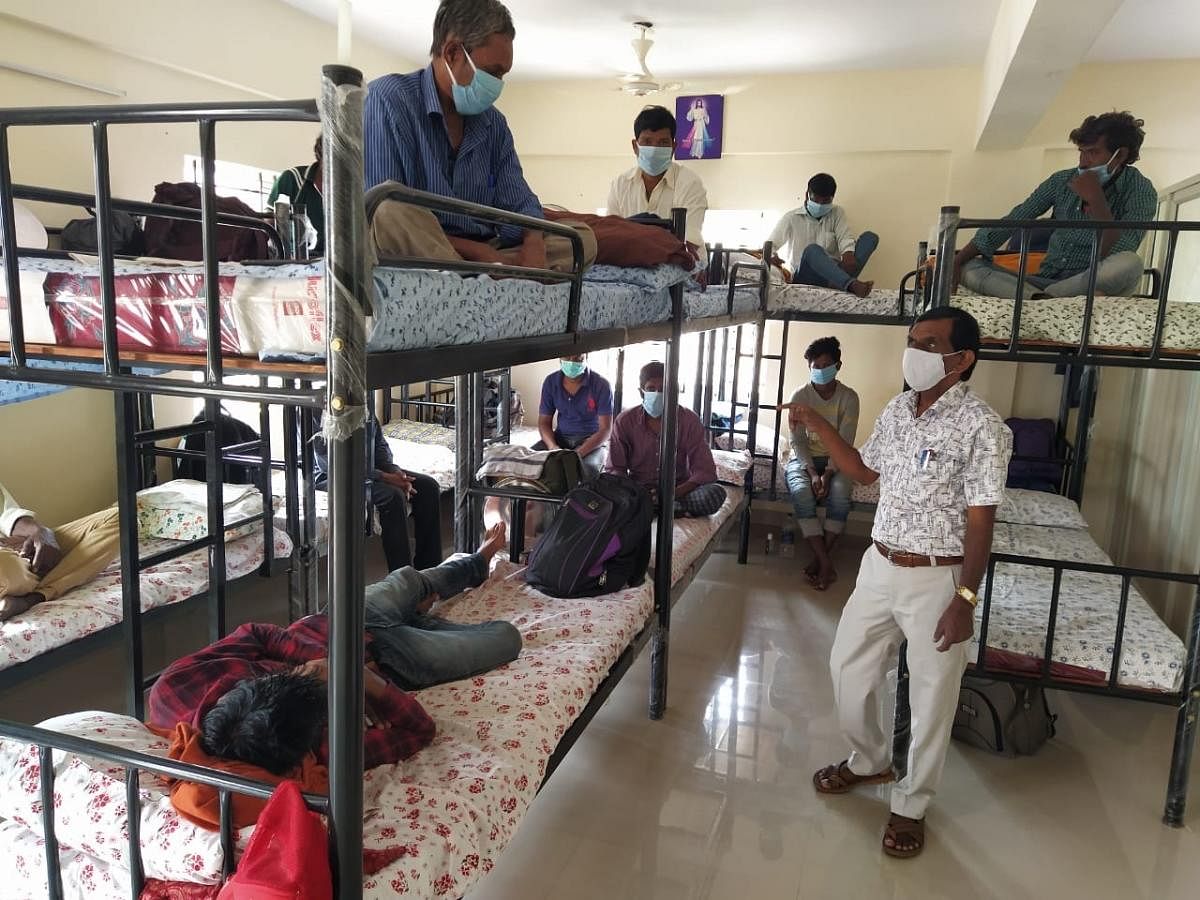
The Karnataka High Court has ordered the BBMP to set up 42 night shelters in three months, but the municipal authorities say they are up against difficult odds.
According to a 2019 survey, 5,000-plus people are living on the streets of Bengaluru. The city has just 10 night shelters and houses 400 homeless people.
The authorities say they have no land for new buildings, and can’t find buildings to rent either.
Raveendra S G, BBMP special commissioner (welfare), says, “When we do find land, the elected representatives already have their own plans for it. So now, we are trying to rent private buildings.”
The BBMP says it has hit a roadblock here too. Tilak (name changed), community organiser, BBMP west zone, says, “The moment owners come to know that their house will be used for the homeless, they back out. They either don’t want homeless people in the neighbourhood, or are worried that the prospects of their building will be ruined.”
The lack of night shelters, however, is just one part of the problem. The other is that homeless people, who are often beggars, migrants, and jobless and abandoned people, aren’t using these shelter homes.
Raveendra wonders if adding more shelters will make any difference. He says, “The existing night shelters are only half-full. On the one hand, the destitute and homeless are suspicious and unwilling to stay in these shelters. On the other hand, we have 125 old-age homes managed by the private sector with a capacity for around 9,000 needy people. A lot of people go there.”
These shelters enforce some rules that could be driving the homeless away. This includes giving up alcohol and attending counselling sessions, says Tilak.
“We provide two-tier cots, blankets, hot water, television, one meal from an Indira canteen and caretakers who take them to hospital in case of a health emergency. During the lockdown, we supplied them with three meals a day. Even with such facilities, many are hesitant to stay,” says Basavaraju R, community affairs officer, BBMP, Yelahanka.
Only 15 people are using a night shelter in Jakkur, Yelahanka, which has an occupancy of 40.
“We are working with NGOs to fill up the shelters. We conduct surveys once in 15 days and try to pick up home- less people from railway stations, bus stands, and other crowded places,” says Basavaraju.
Two shelters in Dasarahalli are currently occupied by nine and 11 people respectively when they can house 20 and 25. “Some people come and go while others on the street are scared to come to the shelters. When we approach them, they often lie to us and say they are waiting for a family member to pick them up,” says Kavitha, community organiser, BBMP, Dasarahalli.
More people used the shelters at the peak of the Covid-19 pandemic. “But once the lockdown was lifted, the migrants and others went back to their hometowns and so, the numbers have declined drastically,” she says.